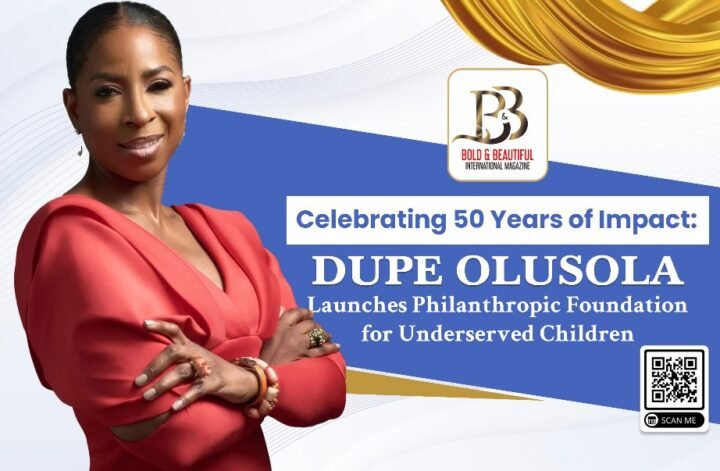Arian Simone used the intensity of United Nations General Assembly week to do something that will matter to investors and policy makers for years. She launched the Fearless Global Initiative, a new platform she says will translate the work of her venture firm into a policy and organising agenda for global economic inclusion. The debut took place in New York on 22 September 2025, the day before world leaders convened at the UN, and it set out what Simone called a 100-year blueprint for economic power.

The event was staged at the Glasshouse Chelsea and billed as a purposeful half-day convening that gathered business leaders, ministers, cultural figures and activists. Organisers positioned the initiative as a bridge between capital and policy: a place where CEOs, philanthropists and diplomats could agree steps to close funding gaps for under-resourced communities. Sponsors and production partners were few but visible, signalling a lean, high-intent launch rather than a broad corporate festival.
To understand why the launch felt urgent, consider the backdrop. Fearless Fund rose to prominence by backing women of colour founders at early stages. That work placed Arian Simone in the eye of a legal and political storm when opponents targeted race-focused grant programmes. Simone settled a prominent suit last year and has since framed the episode as proof that economic inclusion needs institutional defence and a global strategy. The UN convening was pitched as the next move in that strategy.

Simone used the platform to make language matter. She called for a plan that would last generations. “For too long, we’ve talked about equity without building the systems to sustain it,” she said, announcing that the initiative will pursue a multidecade roadmap for inclusion. That language reframes inclusion from temporary corporate programming into durable policy design.
The timing also reflected a tactical pivot. Over the past year, the political climate around diversity programmes hardened and corporate support thinned. Simone told the audience that Fearless had fewer sponsors than in earlier years and that the firm had felt the cost of public legal fights. The initiative’s global push is a response: move beyond domestic litigation and embed demographic equity into international commitments and donor frameworks.
The guest list underlined the organisers’ intent. About 100 guests attended the New York launch, including elected officials, senior humanitarians and high-profile civil-rights lawyers and journalists. The roster ranged from U.S. representatives to African ministers and media figures, signalling that the convening aimed to knit U.S. experience together with diaspora and continental priorities. That mix matters for any plan that wants both capital and political traction.
Policy ideas were already in motion. Simone said she would present a petition at the UN to begin drafting a road map for what she calls demographic equity: matching financial flows and contract awards to the population demographics they serve. Her pitch frames demographic equity as both pragmatic and universal, a proposal she argued could win political support across ideological lines by delivering resources at scale.
The launch was not only political. It married storytelling and culture with technical sessions. Established creatives and social commentators shared panels with investors and diplomats. That programming design reflects a strategic calculation: create narratives that make economic inclusion feel immediate to consumers, voters and capital allocators while also proposing measurable policy steps for governments and multilateral actors.
The business case was explicit. Simone and her team argued that widening access to capital will expand markets and create more durable enterprise pipelines. The initiative aims to translate advocacy into investment windows and policy instruments that unlock institutional capital for businesses led by historically excluded founders. For entrepreneurs, that promise could mean more predictable access to debt and equity at scale.
Practical obstacles remain. The lawsuit and the hostile political currents that accompanied it have reduced fundraising velocity and prompted some corporate partners to step back. The initiative faces the harder challenge of turning a high-profile convening into binding commitments. Converting speeches and petitions into budget lines, procurement targets and international agreements will require sustained diplomacy and measurable accountability frameworks.

That is precisely where the Fearless Global Initiative wants to be judged. Simone has made clear she intends to move beyond grants and venture checks. She wants systems change: procurement reform, donor conditionality tied to demographic outcomes, and new channels for diaspora capital. The UN stage gives those asks visibility, but the real test will be whether member states, multilateral banks and private investors adopt concrete milestones.
For now the launch accomplished two things at once. It reset the narrative around Simone and her firm from litigation to policy leadership, and it placed demographic equity on the agenda of the world’s largest diplomatic week. The coming months will show if that agenda can move from petition to policy and from moral argument to measurable finance. If it does, the Fearless Global Initiative will have succeeded in the single goal that mattered most at the Glasshouse: turning pressure into practical pathways for inclusion.





